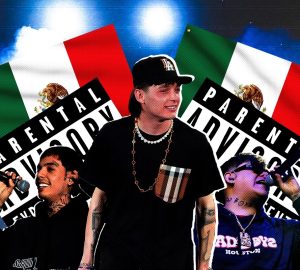by Arantxa Hernandez

“Latinx” is a bold term. It first started gaining momentum around the early 2000s among activist circles in the United States who were looking for a more inclusive term that, unlike most of the Spanish language, would not be gendered. It was a great initiative but, sadly, it did not maintain its standards throughout the execution. In a time when self-definition has become a priority, when labeling ourselves as “progressive,” “democrat” or “conservative” is our way to portray our identity, “Latinx” has become an imposed label. When first conceived by those activists – well-meaning, though primarily English-speaking – switching the “o” in Latino to an “x” seemed as if it was opening a door that invited everyone in, taking into account the ongoing struggles of the LGBT community in Latin America. But has anybody asked us if that’s the way we as individuals, who are now identified as such, would have chosen to describe ourselves?
As a language fanatic who appreciates every detail that encapsulates Spanish — from its cadence, to its variations and even its pronunciations — the term “Latinx” is offensive. It breaks every rule that’s ever been established, and makes it hard to pronounce for native Spanish speakers. The worst failure of this term is that it excludes more groups than it includes; it is incomprehensible for most speakers, especially those who don’t have fluency in English. How to pronounce the “x” has become an ongoing joke within too many families, whose English is very limited. Is it “Latin- ee-kwees?” Or “Latin-ex?”
But even though Spanish is a gender-driven language, where even the word beard (“barba”) has a gender (feminine, by the way), the “o” is often used to describe neutral exceptions. The “o,” although mostly used for masculine nouns, can also be genderless in instances like “lo bueno,” “lo crítico,” etc. The adjectives “inteligente,” “valiente” and “suficiente” are also considered genderless.
And yet they chose x. Despite my strong opinions about language, there is no variation I would not welcome into my vocabulary if it represented my entire community. And let’s not forget about our Native American and Brazilian populations, who often get mislabeled as Hispanics. Last I checked, Brazilians are still speaking Portuguese, and the variety of languages among Native Americans across both continents makes this nonsensical. If “Latinx” is the term that makes every single one of us feel as if we belong somewhere, then I’ll be the first one to open my arms and embrace it.
But that has not been the case.
In the 20 years that Latinx has existed and, in the past two when it has gained considerable popularity in American newspapers and radio shows (after it was included in the English dictionary — note that Spanish dictionaries have yet to recognize it), only three percent of Hispanics have used it to describe themselves (according to a study by Pew Research). Seventy-seven percent said they haven’t even heard of it. It’s too foreign, too disjointed from our native language to make any sense.
So why are we letting another culture dictate how to advance our own? Why did we have to let somebody else make such an important and necessary change?
Openness starts by listening. Openness starts with the willingness to learn about more than what piques our interest or satisfies a quick fix. We will find a way to make everyone feel at home in their lives and bodies not with the words we choose to change, but by the approach we take. “Latinx” was created by a group of people who had the right intentions, who saw the need to expand our own inclusivity that sometimes we, as Hispanics, tend to overlook. We have to admire them for that. But in the rush of the moment, they forgot to listen to the details that define each one of us as Latin-Americans, and have left us, once again, on the outside looking at those who would try to shape our culture.























